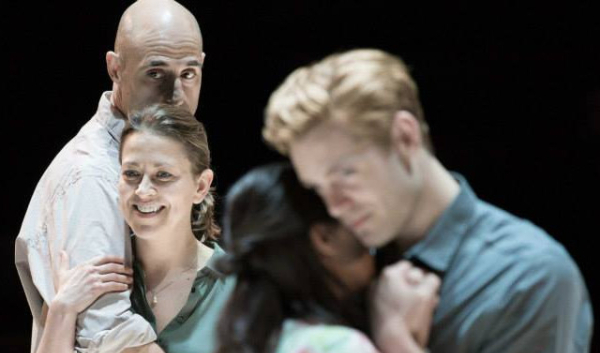Matt Trueman: Bad theatre is bad for all of us
Theatre needs to offer audiences more than they can get from a night in with ”Mad Men”

Sometimes I think I'm harsher than a lot of other critics; less willing to let a show get away with loose ends. I'll often snap at a show that other critics let by, so that my Grinch-like two stars sit next to their three-with-caveats. A lot of the time, that's not simply down to taste. Our two reviews will pick up on the same problems, but differ as to how problematic they are. Do they make a show bad or do they just stop it being really good?
In such cases, I'm often unforgiving – and, being honest, that's not fun. However, the moment a critic waves a show through on the basis that, well, there are worse shows out there, I believe he or she does a reader (and, indeed, theatre) a disservice. To deliver that sort of grudging pass is to declare a show 'good – for theatre.' It forgets that theatre is one art-form amongst many.
The fact is that a show isn't simply in competition with other shows for its audience's attention, but also with every TV programme and every film, every ballet, opera and art exhibition, every stand-up comedian and every pop concert – even every restaurant and every quiet night in. James Grieve, one of Paines Plough's two artistic directors, once told me that the company's programming starts with the question, 'Should you come and see this play or should you stay home and watch Mad Men?' How many plays pass that test?
However, stop asking it and you end up settling for the theatre you've got. Kenneth Tynan put it brilliantly, back in the day: "The critic's job – at least nine tenths of it – is to make way for the good by demolishing the bad."
For the past 18 months, I've been trying to get my younger brother into theatre. He's always thought that theatre wasn't for him – or perhaps that he wasn't for it. He figured that he had it pegged. Theatre was boring. It was posh people in pretty clothes speaking poetry. It was doublets and hose and daggers and sword-fights. It was fan-acting and over-annunciation; OTT musicals and sickly showtunes; something you read out loud in English lessons. Dull. Irrelevant. Worst of all: stagey.
'Too many people end up at the sort of show that makes them swear off theatre entirely'
A lot of theatre is like that – and, often, it's that sort of work that still represents theatre in people's minds. Writing about the election, political journalists talk of the things that 'cut through' to the electorate – ideas and events that embed themselves in the public consciousness and refuse to budge. Ask yourself what cuts through with theatre and you'll find it's the obvious: the West End, big touring musicals, Shakespeare, English Lit lessons – exactly the stuff that put my brother off.
Being a terrible buyer of presents – a last-minute, day-before, what-do-you-mean-you've-run-out-of-Furbies kind of guy – I decided, two years ago, to give him theatre tickets for Christmas. I sent him to Birdland, Simon Stephens's Royal Court play about a rock superstar, and to Brand New Ancients by Kate Tempest at Battersea Arts Centre. After seeing both, he told me that he didn't realise that theatre could be like this: relevant, exciting, raw, vivid, as like a live gig as a play. Since then, he's started going on his own accord. He saw A View From the Bridge with Mark Strong and I can't tell you how much he raved – amazing for someone who, 18 months ago, didn't do theatre.
I'm sure lots of people would do the same – if only the right sort of work cut through. Instead, too many people end up at the sort of show that makes them swear off theatre entirely.
Watching Gypsy last week, I realised why theatre can seem so old-fashioned. Momma Rose starts with a half-decent act: her troupe of child vaudevillians are, at first, just about alright. They get bookings and audiences keep coming – and so she never changes it.
Only before long, her kids have grown out of their parts – and their costumes – and the times (and tastes) have moved on. Momma Rose's show looks increasingly like a relic. (Film doesn't have that problem; it's always a product of its moment. If a film looks old-fashioned, that's because it is; if theatre does, it's because it's dated and tired.)
Don't for a moment imagine that doesn't happen in real life. Think of those long-runners in the West End or even new shows that set out to confirm to what's out there, already pulling in audiences. Those are the dangerous shows, in my opinion; the shows that put people off. It's my job to say so.













